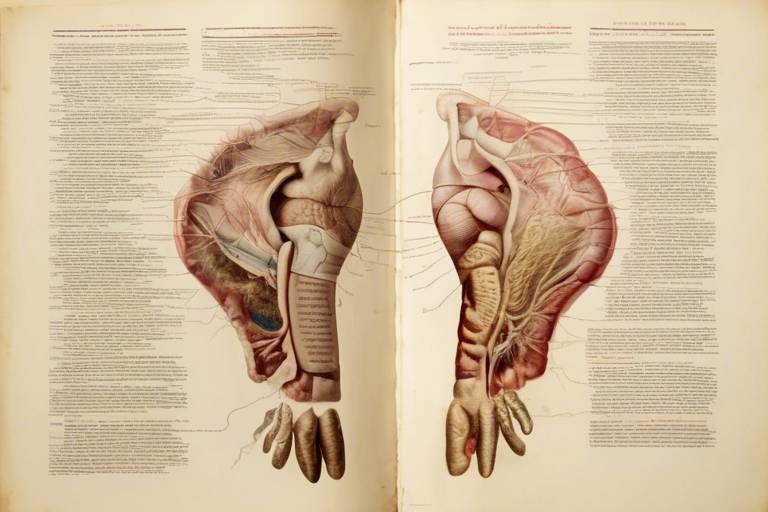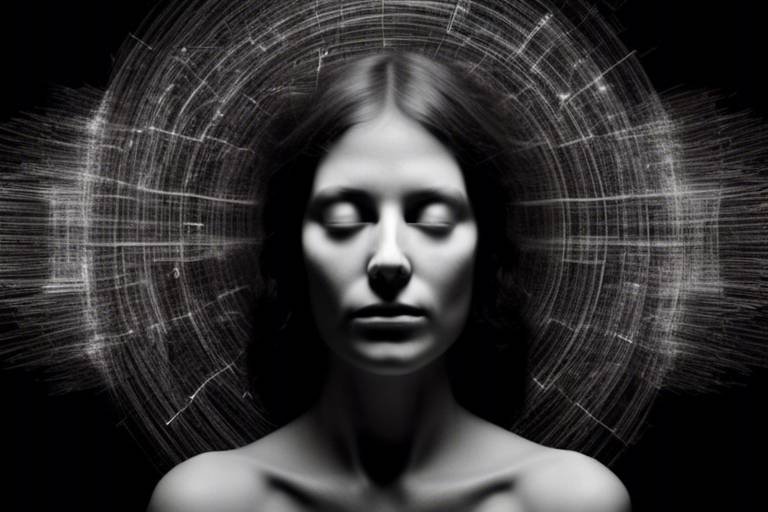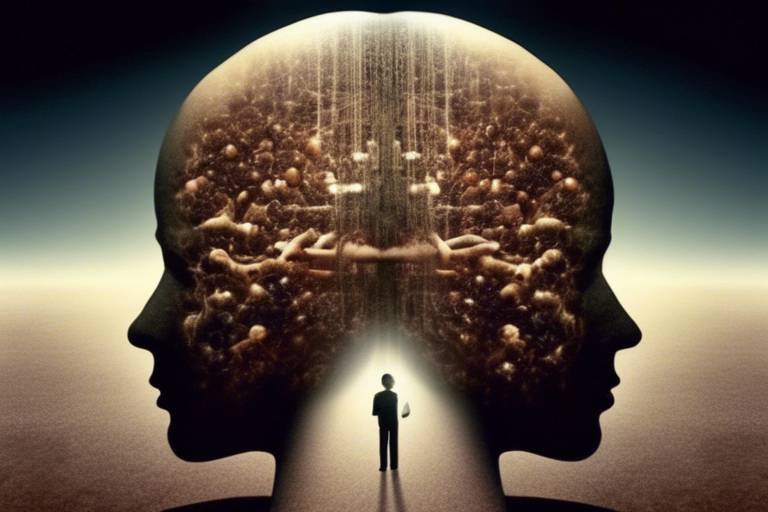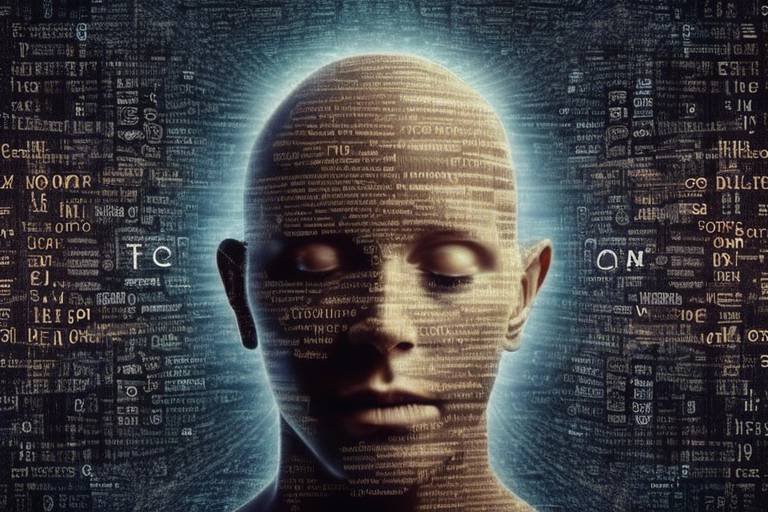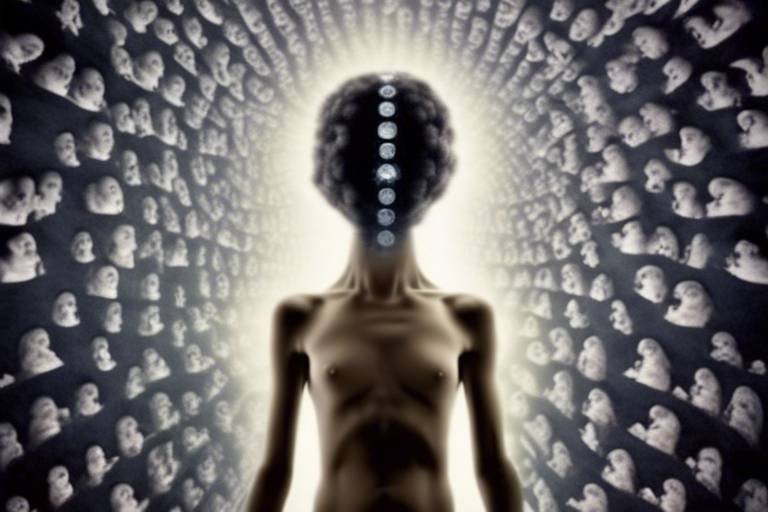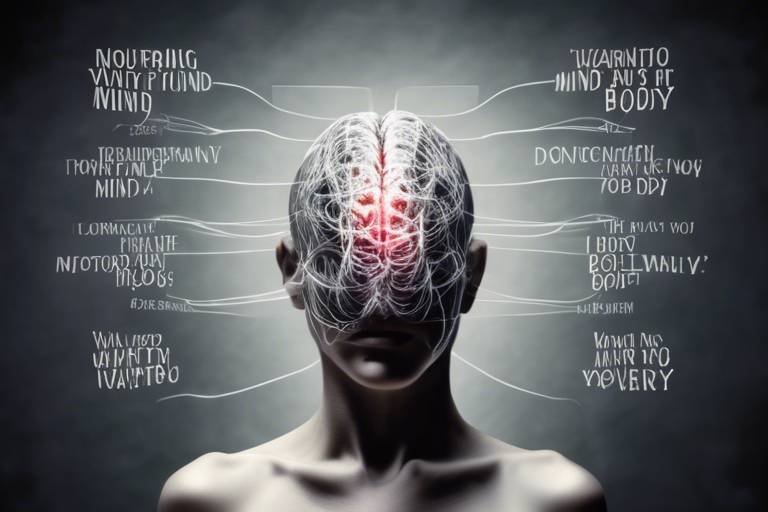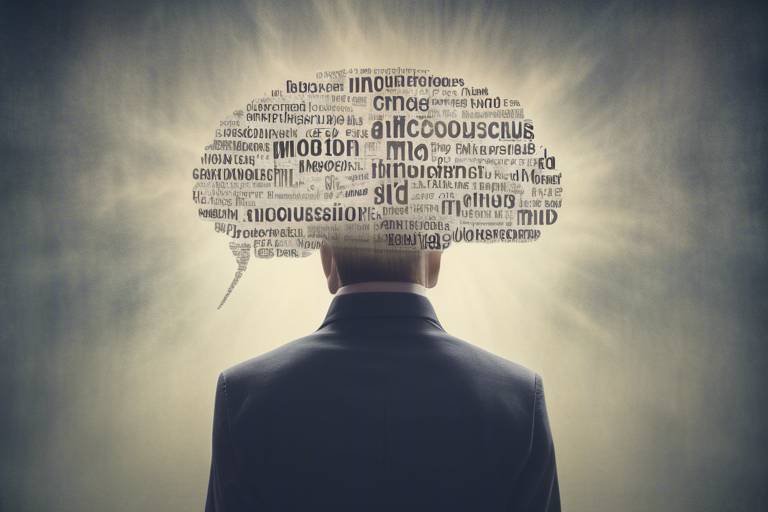The Philosophy of Mind - A Modern Interpretation
The philosophy of mind is a fascinating field that dives deep into the nature of consciousness, identity, and the intricate relationship between the mind and body. It's a realm where ancient wisdom meets modern scientific inquiry, sparking debates that challenge our understanding of what it means to be human. Have you ever pondered the essence of your thoughts or the depth of your emotions? This article aims to unravel these complexities, offering contemporary perspectives that illuminate the age-old questions about the mind.
In today’s fast-paced world, the philosophy of mind is more relevant than ever. With advancements in neuroscience and artificial intelligence, we find ourselves at a crossroads, where age-old philosophical inquiries intersect with cutting-edge technology. What happens when machines start to mimic human thought processes? Do they possess consciousness, or are they simply sophisticated algorithms? These questions not only provoke intellectual curiosity but also challenge our definitions of identity and selfhood.
As we journey through this exploration, we will delve into significant historical developments that have shaped the philosophy of mind. From the musings of ancient philosophers to the groundbreaking theories of the modern era, understanding this evolution is crucial for grasping contemporary debates. We will dissect key theories such as dualism, physicalism, and functionalism, each offering unique lenses through which we can examine consciousness and mental processes.
At the heart of this discussion lies the enduring question of what it means to be conscious. Is consciousness merely a byproduct of physical processes, or does it transcend the physical realm? As we navigate through these philosophical waters, we’ll also touch upon the implications of our findings, particularly in relation to artificial intelligence and technology. As we stand on the brink of a digital revolution, how do we reconcile our understanding of the mind with the capabilities of machines? The answers to these questions may redefine our understanding of humanity itself.
So, buckle up as we embark on this intellectual adventure! Whether you’re a seasoned philosopher or a curious newcomer, there’s something here for everyone. Let’s dive into the rich tapestry of the philosophy of mind and uncover the layers that make us who we are.
- What is the philosophy of mind?
The philosophy of mind is a branch of philosophy that studies the nature of the mind, mental events, and consciousness, exploring how they relate to the physical body and the external world.
- What are the main theories in the philosophy of mind?
The main theories include dualism, which posits that mind and body are distinct; physicalism, which argues that everything about the mind can be explained in physical terms; and functionalism, which focuses on the functions of mental states rather than their internal constitution.
- Why is consciousness important in philosophy?
Consciousness is crucial because it relates to our understanding of selfhood, identity, and the subjective experience of being alive. It raises questions about free will, morality, and what it means to be human.
- How does the philosophy of mind relate to artificial intelligence?
The philosophy of mind intersects with AI in exploring whether machines can possess consciousness or identity, and what ethical implications arise from creating entities that mimic human thought and behavior.

[Historical Background]
To truly grasp the complexities of the philosophy of mind, it's essential to embark on a journey through its historical roots. This exploration reveals how thinkers from various eras have shaped our understanding of consciousness and mental states. From the ancient philosophers who pondered the essence of the soul to contemporary debates about artificial intelligence, the evolution of thought surrounding the mind is both fascinating and enlightening.
The origins of the philosophy of mind can be traced back to ancient civilizations, where philosophers like Socrates and Plato initiated discussions about the nature of the self and the soul. Plato, for instance, proposed a dualistic view that separated the physical body from the non-physical realm of ideas, laying the groundwork for future dualist theories. His allegory of the cave illustrates how our perceptions are mere shadows of a deeper reality, suggesting that understanding the mind requires looking beyond the physical world.
Fast forward to the 17th century, and we encounter René Descartes, who famously declared, "I think, therefore I am." Descartes' dualism posited that the mind is a distinct, non-physical entity separate from the body. This radical idea sparked intense debate and laid the foundation for what would become a significant philosophical divide. While dualism gained traction, physicalist perspectives began to emerge, challenging the notion of a separate mind and body.
Throughout the 19th and 20th centuries, thinkers like John Stuart Mill and Sigmund Freud contributed to the evolving narrative of the mind. Mill's utilitarian approach emphasized the importance of mental experiences in ethical considerations, while Freud's psychoanalytic theory introduced the idea of unconscious processes influencing behavior. These developments highlighted the complexity of the mind, paving the way for modern discussions that intertwine psychology, neuroscience, and philosophy.
In the late 20th century, the philosophy of mind began to incorporate insights from cognitive science and neuroscience. The emergence of functionalism, which views mental states as defined by their roles rather than their physical makeup, reflects this interdisciplinary approach. As we delve deeper into the workings of the brain, questions about consciousness, identity, and the mind-body relationship continue to provoke thought and debate.
In summary, the historical background of the philosophy of mind is a rich tapestry woven from the threads of ancient thought, scientific advancement, and philosophical inquiry. Each era has contributed to our current understanding, prompting us to reconsider what it means to be conscious and how our identities are shaped over time.

[Key Theories]
The philosophy of mind is a rich tapestry woven from various threads of thought, each contributing to our understanding of consciousness and mental processes. Among these threads, three key theories stand out: dualism, physicalism, and functionalism. Each of these theories offers a unique perspective on the intricate relationship between the mind and the body, and they continue to ignite debates among philosophers, neuroscientists, and psychologists alike.
Dualism is perhaps the most historically significant of these theories. It proposes that the mind and body are fundamentally different substances. This idea, famously championed by René Descartes in the 17th century, suggests that while the body is physical, the mind is a non-physical entity. Dualism raises profound questions about the nature of consciousness and personal identity. For instance, if the mind can exist independently of the body, what does that mean for our understanding of life after death? This theory has evolved into two main branches: substance dualism and property dualism.
Substance dualism posits that the mind is a distinct, non-physical substance that interacts with the physical body. This view faces significant philosophical challenges, particularly regarding how two such different substances can interact. Critics argue that if the mind is non-physical, it cannot have any causal influence on the physical body, leading to the infamous "interaction problem." Despite these challenges, substance dualism remains a popular perspective, especially among those who believe in the existence of a soul.
On the other hand, property dualism suggests that while the mind and body are not separate substances, mental states are non-physical properties of the brain. This view allows for a more integrated understanding of the mind-body relationship without the need for a distinct substance. It posits that mental states, such as thoughts and feelings, emerge from physical processes in the brain but cannot be fully reduced to them. This nuanced perspective invites further exploration into how we experience consciousness and identity.
Contrasting sharply with dualism, physicalism argues that everything about the mind can ultimately be explained through physical processes. According to physicalists, mental states are nothing more than brain states, meaning that our thoughts, emotions, and consciousness are products of neurobiological activity. This view aligns with the advancements in neuroscience, which increasingly demonstrate correlations between brain activity and mental experiences. However, physicalism faces its own set of challenges, particularly in addressing the subjective quality of experiences, often referred to as the “qualia” problem.
To illustrate the differences between these theories, consider the following table:
| Theory | Core Belief | Key Proponents | Challenges |
|---|---|---|---|
| Dualism | Mind and body are distinct entities | René Descartes, Plato | Interaction problem |
| Substance Dualism | Mind is a non-physical substance | Descartes | How can they interact? |
| Property Dualism | Mental states are non-physical properties of the brain | David Chalmers | Reductive explanations |
| Physicalism | Everything about the mind is physical | Daniel Dennett | Qualia problem |
In summary, the theories of dualism and physicalism provide two contrasting frameworks for understanding the mind. While dualism emphasizes a separation between mind and body, physicalism seeks to unify them under physical processes. These theories not only shape philosophical discourse but also influence contemporary debates in neuroscience and psychology. As we continue to explore these complex ideas, we inch closer to unraveling the mysteries of consciousness and identity.
- What is dualism? Dualism is the theory that the mind and body are distinct entities, with the mind being non-physical and the body being physical.
- What does physicalism argue? Physicalism asserts that everything about the mind can be explained through physical processes in the brain.
- What are the challenges facing dualism? One of the main challenges is the interaction problem, which questions how a non-physical mind can influence a physical body.
- How does property dualism differ from substance dualism? Property dualism claims that mental states are non-physical properties of the brain, rather than a separate substance.

[Dualism]
Dualism, a fascinating perspective in the philosophy of mind, posits that the mind and body are fundamentally distinct entities. This idea, which has roots stretching back to ancient philosophy, invites us to ponder profound questions about our existence and consciousness. At its core, dualism suggests that our mental experiences cannot be fully explained by physical processes alone. Think of it this way: if the body is like a complex machine, then the mind is akin to the software that runs on it—two separate realms that interact but operate on entirely different principles.
The most notable proponent of dualism was the French philosopher René Descartes, who famously stated, “I think, therefore I am.” Descartes argued that the mind, or the soul, is a non-material entity that exists independently of the body. This perspective not only revolutionized philosophical discourse but also set the stage for ongoing debates about consciousness and personal identity. The implications of dualism are profound, as they challenge us to consider what it truly means to be human and how we understand our own consciousness.
Within the framework of dualism, we can identify two primary branches: substance dualism and property dualism. Each offers unique insights into the mind-body relationship:
- Substance Dualism: This view holds that the mind is a non-physical substance, inherently different from the physical body. This raises intriguing questions about the nature of existence and the afterlife, as it implies that the mind could survive beyond the physical form.
- Property Dualism: In contrast, property dualism suggests that while the mind may not be a separate substance, mental states are non-physical properties of the brain. This perspective allows for a more integrated view of the mind and body, yet still acknowledges the unique qualities of mental experiences.
Despite its compelling arguments, dualism faces significant philosophical challenges. Critics argue that it struggles to explain how two distinct substances can interact—a dilemma often referred to as the "interaction problem." For instance, if the mind and body are separate, how do thoughts influence physical actions? This question sparks debates about the nature of causation and the limits of our understanding of consciousness.
Moreover, dualism has been contrasted with the rise of physicalism, which asserts that everything about the mind can be explained through physical processes. The ongoing dialogue between these two perspectives fuels much of the contemporary discourse in the philosophy of mind, as scholars and thinkers strive to unravel the complexities of consciousness and identity.
In summary, dualism offers a rich and thought-provoking framework for exploring the mind-body relationship, one that continues to inspire inquiry and debate. As we delve deeper into the nature of consciousness, we find ourselves grappling with questions that challenge our understanding of what it means to be human. The exploration of dualism not only enhances our philosophical landscape but also invites us to reflect on our own experiences of existence.
What is dualism in philosophy?
Dualism is the belief that the mind and body are two distinct entities that interact with each other. It suggests that mental phenomena are non-physical and cannot be fully explained by physical processes.
Who is the main proponent of dualism?
The main proponent of dualism is René Descartes, who argued that the mind is a non-material substance separate from the body.
What are the types of dualism?
There are two main types of dualism: substance dualism, which posits that the mind is a separate non-physical substance, and property dualism, which suggests that mental states are non-physical properties of the brain.
What are the criticisms of dualism?
Critics argue that dualism struggles to explain how the mind and body interact, leading to the "interaction problem." Additionally, the rise of physicalism challenges the dualist perspective by asserting that all mental phenomena can be explained through physical processes.

[Substance Dualism]
Substance dualism is a fascinating and often debated theory in the philosophy of mind, positing that the mind and body are fundamentally different kinds of substances. This idea, which traces its roots back to the influential philosopher René Descartes, suggests that while our bodies are made up of physical matter, our minds exist as non-physical entities. Imagine your mind as a ghostly figure floating above a physical body—this vivid metaphor captures the essence of substance dualism, emphasizing the separation between our mental and physical selves.
Descartes famously declared, "Cogito, ergo sum" ("I think, therefore I am"), emphasizing the primacy of thought and consciousness in defining our existence. His argument hinges on the belief that our mental states, such as thoughts, emotions, and perceptions, cannot be fully explained through physical processes alone. This leads to a profound implication: if the mind is a different substance, how do these two realms interact? This question has sparked endless debates and has led to various interpretations and critiques of dualism.
One of the primary challenges to substance dualism is the mind-body interaction problem. How can a non-physical mind cause physical actions, such as moving a hand or speaking? This dilemma has led some philosophers to propose alternative theories that attempt to bridge the gap between the mental and physical realms. Here are a few key points regarding this interaction:
- Interactionism: This view suggests that the mind can influence the body and vice versa. However, it struggles to explain the mechanism behind this interaction.
- Epiphenomenalism: This theory posits that physical processes can cause mental states, but not the other way around, implying that our thoughts are merely byproducts of brain activity.
- Parallelism: This perspective holds that the mind and body run parallel to each other, with no direct interaction, akin to two synchronized clocks.
Despite these challenges, substance dualism has its supporters who argue that it provides a compelling explanation for the richness of human experience. The subjective nature of consciousness—our ability to feel pain, joy, or love—seems to transcend mere physical processes. This leads to the question: can we truly reduce the complexity of our mental lives to brain activity alone? Advocates of substance dualism assert that the answer is no, highlighting the unique qualities of human consciousness that resist physical explanation.
Moreover, substance dualism raises intriguing implications for personal identity. If our minds are distinct from our bodies, what happens to our identity when our physical form changes? For instance, consider the case of someone undergoing significant changes due to aging or injury. Are they still the same person? Dualists might argue that as long as the non-physical mind remains intact, personal identity persists, regardless of the physical state of the body.
In conclusion, while substance dualism presents a robust framework for understanding the mind-body relationship, it is not without its criticisms. The ongoing dialogue between dualists and their opponents continues to shape contemporary philosophy, inviting us to ponder the profound mysteries of consciousness and identity. As we explore these themes, one thing remains clear: the quest to understand the mind is as complex as the mind itself.

[Property Dualism]
Property dualism is a fascinating perspective in the philosophy of mind that suggests mental states are non-physical properties of the brain. Unlike substance dualism, which posits that the mind and body are separate entities, property dualism asserts that mental phenomena arise from the physical brain but are not reducible to mere physical processes. This idea opens up a myriad of questions about the nature of consciousness and how we experience the world around us.
To better understand property dualism, consider the analogy of a musical performance. The musicians (representing the physical brain) create music (representing mental states) through their instruments (the physical processes). While the music is undeniably linked to the musicians and their instruments, it possesses qualities that cannot be fully captured by merely analyzing the musicians' physical actions. Similarly, property dualism argues that mental states have qualities, such as thoughts and emotions, that cannot be completely explained through physical interactions alone.
One of the most compelling aspects of property dualism is its ability to address the complexities of subjective experience. Think about it: when you feel joy, sadness, or even pain, these sensations are deeply personal and cannot be entirely understood through a purely physical lens. This perspective invites us to consider the richness of human experience and the limitations of a strictly physicalist approach to understanding the mind.
However, property dualism is not without its challenges. Critics often point out that it struggles to explain how non-physical properties can interact with physical substances. For instance, if mental states are properties of the brain, how do they influence physical actions? This question leads us into a labyrinth of philosophical inquiry, where the boundaries between mind and body blur, prompting further exploration into the mind-body problem.
Despite these challenges, property dualism has gained traction in contemporary discussions about consciousness. It encourages a more nuanced view of identity and personal experience, emphasizing that our mental lives are rich and multifaceted. In a world increasingly dominated by physical explanations, property dualism serves as a reminder that there is more to our existence than what meets the eye.
In summary, property dualism presents a compelling framework for understanding the relationship between mental states and the physical brain. It acknowledges the unique qualities of our subjective experiences while challenging us to explore the intricate dance between mind and body. As we delve deeper into the philosophy of mind, property dualism invites us to embrace the complexity of consciousness and the mysteries that lie within.
- What is property dualism? Property dualism is the view that mental states are non-physical properties of the brain, distinct from physical processes.
- How does property dualism differ from substance dualism? Substance dualism posits that the mind and body are separate entities, while property dualism suggests that mental states arise from the physical brain but are not reducible to it.
- What are the implications of property dualism? Property dualism encourages a deeper understanding of consciousness and subjective experience, highlighting the limitations of purely physical explanations.
- What challenges does property dualism face? Critics argue that property dualism struggles to explain how non-physical properties can interact with physical substances, raising questions about the mind-body relationship.

[Physicalism]
Physicalism, at its core, is the philosophical position asserting that everything about the mind can be understood through physical processes and properties. Imagine a complex machine, where every cog and wheel plays a vital role in its operation; similarly, physicalism suggests that our thoughts, emotions, and consciousness emerge from the intricate workings of the brain. This perspective has gained traction in modern philosophy and neuroscience, as advances in technology allow us to explore the brain's functions in unprecedented detail.
One of the main strengths of physicalism lies in its scientific foundation. By relying on empirical evidence and observable phenomena, physicalists argue that mental states are not separate from physical states but are instead deeply intertwined. For instance, when we experience joy or sadness, these emotions correspond to specific neural activities in the brain. This relationship is often illustrated through the following table:
| Mental State | Corresponding Neural Activity |
|---|---|
| Happiness | Increased dopamine release |
| Sadness | Altered serotonin levels |
| Anxiety | Heightened amygdala activity |
However, physicalism is not without its challenges. Critics point out that while physical processes can explain many aspects of mental states, they often struggle to account for the qualitative experience of consciousness—what it feels like to be you. This dilemma leads to fascinating discussions about the limitations of a purely physicalist approach. For example, how can we explain the richness of subjective experiences, like the taste of chocolate or the feeling of love, through mere brain activity? It’s a bit like trying to describe a beautiful painting using only the colors on the palette; the essence of the experience often feels lost in translation.
Moreover, physicalism faces the daunting task of explaining the so-called "explanatory gap." This concept refers to the difficulty in bridging the divide between physical processes and conscious experience. While we can observe brain activity during various mental states, the question remains: how do these physical processes translate into the rich tapestry of human experience? This challenge has led some philosophers to propose alternative theories, such as dualism, which posits that mental states exist independently of physical states.
Despite these challenges, physicalism continues to be a dominant theory in contemporary philosophy of mind. Its emphasis on scientific inquiry and empirical validation resonates with our modern understanding of the world, where the interplay between mind and body is increasingly recognized as a complex but unified phenomenon. As we delve deeper into the mysteries of consciousness, physicalism offers a promising framework for understanding how our mental lives are rooted in the physical world.
In summary, physicalism presents a compelling narrative about the mind-body relationship, emphasizing the importance of physical processes in shaping our mental experiences. Yet, it also invites us to confront profound questions about the nature of consciousness and the essence of what it means to be human. As we continue to explore these philosophical waters, the dialogue between physicalism and alternative perspectives remains vibrant and essential.
- What is physicalism? Physicalism is the philosophical view that everything about the mind can be explained through physical processes and properties.
- How does physicalism relate to neuroscience? Physicalism aligns closely with neuroscience, as both fields investigate the connections between brain activity and mental states.
- What are the criticisms of physicalism? Critics argue that physicalism struggles to explain subjective experiences, leading to discussions about the "explanatory gap" between physical processes and conscious experience.
- Can physicalism account for consciousness? While physicalism provides a framework for understanding many aspects of consciousness, it faces challenges in fully explaining the qualitative nature of subjective experiences.

[Consciousness and Identity]
When we dive into the intricate relationship between consciousness and personal identity, we uncover a fascinating tapestry that shapes our understanding of who we are. Have you ever paused to ponder what makes you, *you*? Is it your memories, your thoughts, or perhaps your experiences? The modern interpretations of consciousness suggest that our identity is not a static entity; rather, it's a dynamic and evolving construct influenced by a myriad of factors, including our interactions with the world around us.
At the heart of this exploration lies the question of how consciousness contributes to our sense of self. Many philosophers argue that consciousness is the very essence of our identity. It allows us to reflect on our past, make decisions in the present, and envision our future. This temporal continuity is crucial for maintaining a coherent sense of self over time. Imagine consciousness as a river, flowing continuously, where each moment is a drop of water contributing to the larger body of our identity.
However, the relationship between consciousness and identity is not without its challenges. One of the central debates revolves around the concept of personal identity over time. How do we remain the same person as we undergo changes in our thoughts, beliefs, and even our physical bodies? Philosophers like John Locke suggested that memory plays a pivotal role in this continuity. He posited that as long as we can remember past experiences, we maintain our identity, even if our physical form changes drastically.
Moreover, advancements in neuroscience have opened new avenues for understanding this relationship. Studies show that our brain's plasticity allows for changes in our identity as we learn and grow. The more we engage with new ideas and experiences, the more our sense of self can evolve. This raises intriguing questions about the implications of artificial intelligence and technology on our identity. As we integrate AI into our lives, we must ask ourselves: how might our interactions with machines influence our consciousness and identity?
Furthermore, the problem of other minds adds another layer of complexity to our understanding of consciousness and identity. How do we know that others experience consciousness in a way similar to ours? This philosophical quandary not only challenges our perception of others but also our ability to empathize and connect with them. It highlights the importance of shared experiences in forming our identities and understanding those around us.
As we navigate through these philosophical waters, it's essential to recognize that our understanding of consciousness and identity is still a work in progress. The interplay between our mental states and the physical world continues to fuel debates among philosophers, neuroscientists, and ethicists alike. With each new discovery, we inch closer to unraveling the mysteries of the mind and, in turn, the very essence of what it means to be human.
- What is the main relationship between consciousness and identity? Consciousness is often seen as the core of personal identity, allowing individuals to reflect on their experiences and maintain a sense of self over time.
- How do changes in memory affect our identity? According to philosophers like John Locke, memory is crucial for personal identity; as long as we can recall past experiences, we retain our identity despite changes.
- What role does neuroscience play in understanding consciousness? Neuroscience reveals how brain plasticity allows our identities to evolve, suggesting that our interactions and experiences shape who we are.
- How does the problem of other minds relate to identity? The problem of other minds raises questions about how we perceive and empathize with others, influencing our understanding of shared identity and consciousness.

[The Problem of Other Minds]
Have you ever found yourself gazing into someone else's eyes, pondering the depths of their thoughts? This is precisely the essence of The Problem of Other Minds. At its core, this philosophical dilemma questions how we can be sure that other minds exist beyond our own. It's a perplexing issue that has intrigued philosophers for centuries, and it raises profound questions about our understanding of consciousness and interpersonal relationships.
The crux of the problem lies in the subjective nature of experience. While we can observe behaviors and reactions in others, we cannot directly access their thoughts or feelings. It’s akin to watching a movie without ever knowing the storyline; you see the actors, hear the dialogue, but you remain in the dark about the underlying narrative. This leads us to wonder: if we can’t experience another person’s mind, how can we be certain it exists?
Philosophers like René Descartes have attempted to tackle this issue. Descartes famously stated, “I think, therefore I am,” suggesting that the very act of thinking is proof of one's existence. However, this idea doesn't translate easily to others. Just because I can think does not guarantee that you can too. This logical leap is where the problem intensifies.
Several perspectives have emerged to address this conundrum:
- Behaviorism: This viewpoint suggests that we can infer the existence of other minds through observable behavior. If someone reacts in a certain way, we assume they are experiencing corresponding thoughts and feelings. However, critics argue that this is merely a surface-level interpretation and doesn't account for the rich inner lives of individuals.
- Analogical Argument: This approach posits that since we know our own mental states, we can draw analogies to others. If I feel pain when I stub my toe, it’s reasonable to assume that you would feel pain in a similar situation. Yet, this is still a leap of faith, relying on the assumption that others share similar experiences.
- Empathy and Intuition: Some argue that our capacity for empathy allows us to connect with others on a deeper level. Through shared experiences and emotional resonance, we can intuitively grasp the existence of other minds. Still, this can be a subjective and variable process, leading to misunderstandings.
Despite these attempts to solve the problem, it remains a significant philosophical challenge. The implications are vast, affecting how we interact with one another. If we cannot be sure of the existence of other minds, how does that impact our relationships, our empathy, and our moral responsibilities toward others? It’s a thought-provoking question that invites us to reconsider our understanding of human connection.
In contemporary discussions, this problem also intersects with advancements in technology and artificial intelligence. As we create machines that mimic human behavior, we face the challenge of determining whether these entities possess minds of their own or if they are mere simulacra of consciousness. This raises ethical questions about our treatment of AI and our expectations of emotional engagement with non-human entities.
Ultimately, The Problem of Other Minds invites us to reflect on the nature of existence and consciousness. While we may never fully resolve this issue, it encourages us to embrace the mystery of human experience, fostering a sense of curiosity and wonder about the minds that surround us.
- What is the Problem of Other Minds? The Problem of Other Minds is a philosophical issue that questions how we can know that other minds exist beyond our own.
- Why is it difficult to prove the existence of other minds? It is difficult because we can only access our own thoughts and experiences directly, while we must infer the existence of others' minds through their behavior.
- How do philosophers attempt to address this problem? Philosophers have proposed various approaches, including behaviorism, analogical arguments, and the role of empathy in understanding others.
- What are the implications of this problem for AI? As AI technology advances, it raises questions about whether machines can possess minds and what ethical considerations arise from our interactions with them.

[The Hard Problem of Consciousness]
The concept known as the Hard Problem of Consciousness was famously coined by philosopher David Chalmers in 1995. At its core, this problem grapples with a profound mystery: why and how do subjective experiences arise from physical processes in the brain? While we can observe and measure brain activity through various scientific methods, such as fMRI scans or EEGs, these tools only reveal the mechanics of brain function, not the essence of consciousness itself. It's like trying to describe the taste of chocolate by merely examining its chemical composition; you miss the rich experience of savoring it.
Chalmers distinguishes between the easy problems of consciousness, which involve explaining cognitive functions and behaviors, and the hard problem, which delves into the qualitative aspects of experience—what it feels like to be aware. For instance, consider the experience of seeing the color red. We can measure the wavelengths of light and understand how they interact with the eye and brain, but the subjective experience—the "what it's like" of seeing red—remains elusive and unquantifiable.
To further illustrate this, let’s consider a few critical points surrounding the hard problem:
- Subjectivity: Consciousness is inherently subjective. Each person's experience is unique, making it challenging to study scientifically.
- Qualia: These are the individual instances of subjective, conscious experience. The term "qualia" refers to the internal and subjective component of perception, like the specific way a sunset looks or how music resonates emotionally.
- Physicalism vs. Dualism: The hard problem poses significant challenges to physicalist views that argue everything about the mind can be explained through physical processes. If subjective experiences cannot be fully accounted for by brain activity, what does that imply for our understanding of reality?
The implications of the hard problem extend beyond philosophy; they touch on ethics, artificial intelligence, and our understanding of what it means to be human. As we develop more sophisticated AI systems, questions arise about whether these machines could ever possess consciousness or subjective experiences. Can a computer truly "feel," or is it merely simulating responses based on programmed algorithms? This dilemma forces us to reevaluate our definitions of consciousness and identity in an increasingly digital world.
Moreover, the hard problem invites us to consider the nature of existence itself. If consciousness cannot be fully explained through physical means, does this suggest that there is more to reality than what we can observe and measure? This line of inquiry opens the door to various philosophical interpretations, including those rooted in spirituality and metaphysics.
In summary, the hard problem of consciousness remains one of the most intriguing and perplexing challenges in both philosophy and science. As we continue to explore the depths of human experience, we must confront these questions head-on, embracing the mystery of consciousness while striving for understanding. The journey may not yield definitive answers, but it certainly enriches our comprehension of what it means to be alive and aware.
- What is the hard problem of consciousness?
The hard problem of consciousness refers to the difficulty of explaining why and how we have subjective experiences, despite understanding the physical processes in the brain.
- Who coined the term "hard problem of consciousness"?
The term was coined by philosopher David Chalmers in 1995.
- How does the hard problem differ from easy problems of consciousness?
Easy problems focus on cognitive functions and behaviors that can be studied scientifically, whereas the hard problem addresses the qualitative aspects of experience that remain elusive.
- What implications does the hard problem have for artificial intelligence?
The hard problem raises questions about whether AI can ever achieve consciousness or subjective experience, challenging our definitions of what it means to be human.

[Implications for AI and Technology]
As we plunge deeper into the digital age, the intersection of philosophy of mind and artificial intelligence becomes increasingly fascinating and complex. The rapid advancements in AI technology raise profound questions about the nature of consciousness, identity, and what it fundamentally means to be human. Are we on the brink of creating machines that not only mimic human behavior but also possess some form of consciousness? This inquiry leads us to reflect on the implications of such developments.
One of the most pressing concerns is the ethical dimension of AI. As machines become more sophisticated, we must consider the moral status of AI entities. If we create a machine that exhibits behaviors akin to human consciousness, should it be granted rights? This question is reminiscent of the debates surrounding animal rights, where the capacity for suffering and emotional experience plays a crucial role. The challenge lies in defining what constitutes consciousness and whether it can be replicated in a non-biological entity.
Moreover, the implications of AI extend to our understanding of personal identity. As technology blurs the lines between human and machine, we must ask ourselves: if an AI can replicate our thoughts, emotions, and behaviors, does it have a claim to our identity? This leads to the concept of the digital self, where our online personas may diverge significantly from our physical selves. The philosophical ramifications of this divergence could reshape our understanding of selfhood and continuity of identity over time.
To illustrate these implications further, consider the following table that summarizes key ethical concerns regarding AI:
| Ethical Concern | Description |
|---|---|
| Consciousness | Can AI truly possess consciousness, or is it merely simulating human behavior? |
| Rights of AI | If AI exhibits consciousness, should it have rights similar to humans? |
| Identity | How does AI affect our understanding of personal identity and the self? |
| Emotional Connection | Can humans form genuine emotional bonds with AI entities? |
Furthermore, we must not overlook the impact of AI on human relationships. As we increasingly interact with AI in our daily lives, there is a risk that our interpersonal connections may weaken. For instance, when we rely on AI for companionship or emotional support, do we risk losing the depth of human connection? The nuances of empathy, understanding, and shared experiences are difficult, if not impossible, to replicate in machines.
In summary, the implications of AI and technology on the philosophy of mind are vast and multifaceted. As we navigate this uncharted territory, it is crucial to engage in ongoing discussions about the ethical, philosophical, and emotional dimensions of our relationship with AI. Are we ready to embrace a future where the lines between human and machine blur, or will we hold steadfast to our understanding of consciousness and identity? Only time will tell, but one thing is certain: the conversation has only just begun.
- What is the philosophy of mind?
The philosophy of mind explores the nature of consciousness, mental states, and the relationship between the mind and body. - Can AI ever be conscious?
While AI can simulate behaviors associated with consciousness, whether it can truly possess consciousness remains a debated topic. - What ethical concerns arise from AI?
Key concerns include the moral status of AI, rights of AI entities, and the impact of AI on human relationships. - How does AI affect our understanding of identity?
AI challenges traditional notions of identity by creating digital selves that may diverge from our physical identities.
Frequently Asked Questions
- What is the philosophy of mind?
The philosophy of mind is a branch of philosophy that explores the nature of the mind, consciousness, and their relationship to the physical body. It delves into questions about what it means to think, feel, and perceive, and how these mental processes relate to the physical world around us.
- What are the key theories in the philosophy of mind?
Some of the major theories include dualism, which posits that mind and body are separate; physicalism, which argues that everything about the mind can be explained through physical processes; and functionalism, which views mental states as defined by their functional roles rather than their internal composition.
- What is dualism?
Dualism is the belief that the mind and body are distinct entities. This theory suggests that while the body is physical, the mind is non-physical, leading to intriguing discussions about consciousness and personal identity.
- What is the difference between substance dualism and property dualism?
Substance dualism claims that the mind is a non-physical substance, while property dualism suggests that mental states are non-physical properties of the brain. Both theories challenge physicalist views but approach the mind-body relationship in different ways.
- How does physicalism explain consciousness?
Physicalism posits that all mental phenomena can be understood through physical processes in the brain. It suggests that consciousness arises from complex interactions of neurons and brain structures, although this view faces challenges in addressing subjective experiences.
- What is the "hard problem" of consciousness?
The hard problem of consciousness, coined by David Chalmers, refers to the difficulty of explaining why and how subjective experiences arise from physical processes. It raises profound questions about the nature of consciousness and the limits of scientific understanding.
- How does the philosophy of mind relate to artificial intelligence?
The philosophy of mind intersects with artificial intelligence by raising ethical and philosophical questions about consciousness and identity in machines. As AI technology advances, it prompts us to reconsider what it means to be human and whether machines could possess consciousness.
- What implications does the philosophy of mind have for personal identity?
Modern interpretations of the philosophy of mind influence our understanding of personal identity by exploring how consciousness relates to selfhood. It raises questions about continuity of identity over time and how our mental states shape who we are.
- Can we ever truly know other minds exist?
The problem of other minds questions our ability to know if other beings have minds like ours. This philosophical issue impacts our interpersonal relationships and empathy, as it challenges the certainty of understanding others' thoughts and feelings.


